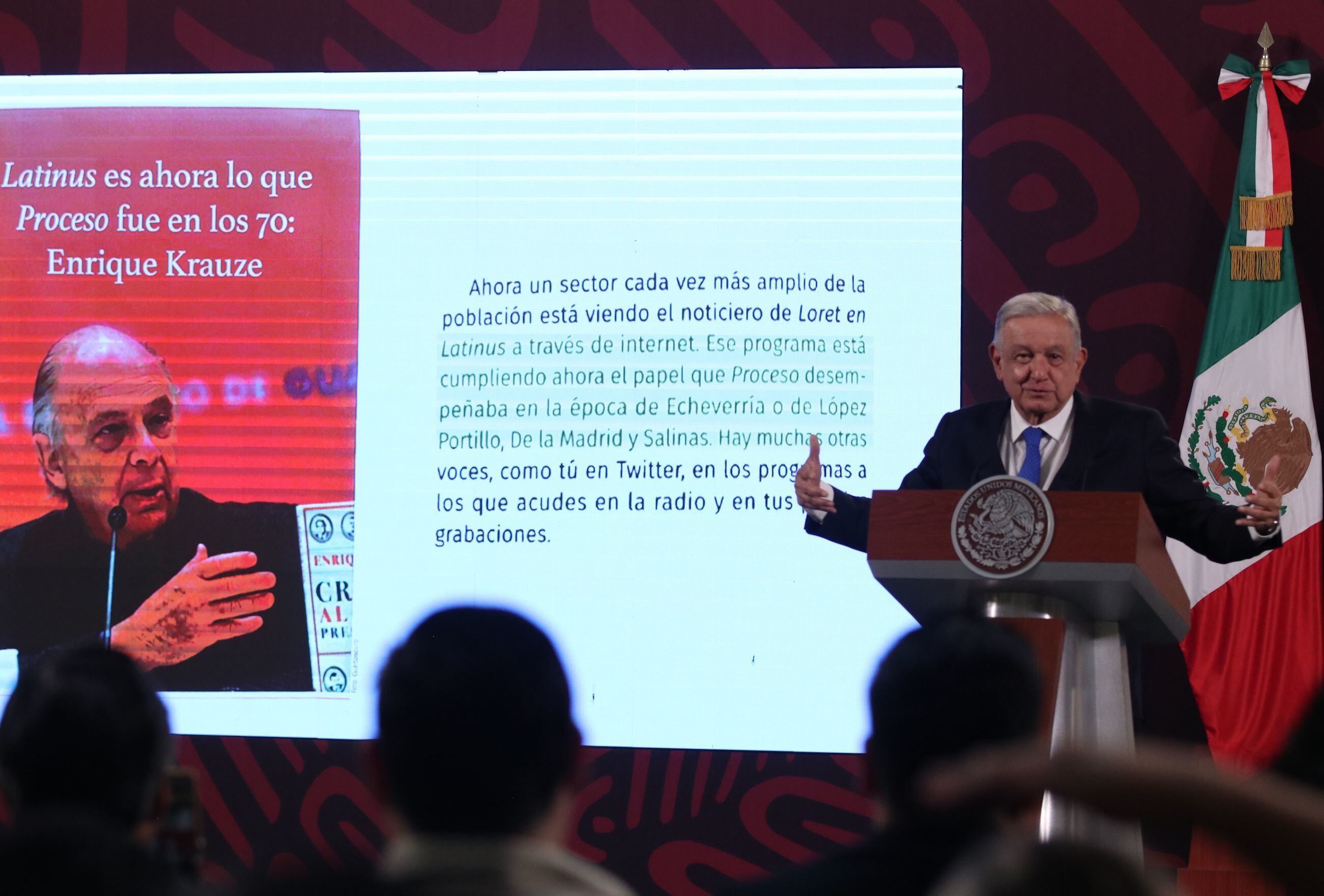
In the context of the growing polarization we are experiencing, the idea that the media, journalists and analysts must take sides resonates more strongly. Since the beginning of his mandate, the President has insisted on defining the sides and has attacked with all his might those who he considers are not on his side. With the possibility that the 4T will be extended to the next six-year term, a similar demand now arises from the opposition side. Even the most critical journalists of the 4T are disqualified for pointing out errors or failures of the opposition. In some cases, the tone of the disqualifications and the epithets used do not differ from those emanating from the National Palace.
To protect himself from criticism, the President daily fuels distrust towards the media and critical voices that do not align with his government. According to the most recent Digital News Report from the Reuters Institute, this strategy seems to have worked: trust in news has fallen from 50 percent in 2019 to 36 percent in 2023.
There is nothing surprising in the President’s position, since that has been his strategy since the first day of his mandate and, it seems, it has worked for him. What is really interesting now, as was evident in the reactions on social networks to the criticism of candidate Gálvez’s performance in the presidential debate, is that from the other side anything that does not constitute total and unreserved support for someone is questioned. They say, it can ‘save’ Mexico from the 4T.
Although Gálvez avoided entering into public disqualifications, the social media professionals at his service quickly became active, as did many of his authentic followers, who vehemently disqualified any criticism of their candidate. The political operation through networks is nothing new, as is the number of real users on networks that this blind support for the opposition candidate requires.
I am not referring to the users who disqualified the criticism of candidate Gálvez’s performance on false premises, ranging from the fact that candidate Sheinbaum’s lies were not noted, to the fact that everything was motivated by supposedly unmentionable motivations of the analysts. I am thinking rather of those who tried to discredit them by arguing that, given the risk that the continuity of the 4T represents for Mexican democracy, it is not the time to spare support for the opposition candidate. It is enough to see, they say, the example of Venezuela or Nicaragua, to measure the risk we face.
Although it is true that the package of reforms proposed by the President, which have been endorsed by candidate Sheinbaum, suggests a return to the authoritarian presidentialism of the era of PRI hegemony, I do not believe that this places us on a par with Venezuela or Nicaragua. But I’ll leave that for another time. For now, I focus on the argument that the press, journalists and analysts must put criticism aside because there is a greater good to protect: our democracy.
In the extreme, the dilemma, similar to that faced by the press in the United States in the face of a possible victory for Donald Trump, seems to be between maintaining the neutrality and balance that mark the canons of traditional journalism or abandoning them to take sides in favor of the democracy and those who support it. This last position is what underlies some of the comments that have circulated on social networks following the debate.
In the field of journalistic practice, I do not think that what it is about is taking sides for someone, no matter how much you fear the consequences of the alternative. Now, more than ever, what is appropriate is to dimension what is at stake, considering the context of the campaigns and what the candidates’ approaches imply. The demand of the moment is not to ignore information or cancel criticism, but to present the information in a faithful and contextualized manner.
The great challenge for the media and journalism in Mexico, as in other countries, is to maintain the trust of the people. The President’s strategy, as we have mentioned, has been to undermine the credibility of those who do not submit to his cause, accusing them of pursuing perverse interests, being biased and allied with the opposition. This is how he has tried to discredit them.
Therefore, it is surprising and paradoxical that now, from the opposition camp, the media and journalists are expected not to criticize the candidate, when precisely the critical capacity of the media is what has bothered the President the most. In this context of deep division, and with so much at stake, the real task of journalism and critics should not be to align politically, but to reinforce objectivity and scrutiny. Giving in to pressure to take sides would only serve to feed the President’s narrative, undermining the credibility of the media and weakening the democracy it seeks to defend.
